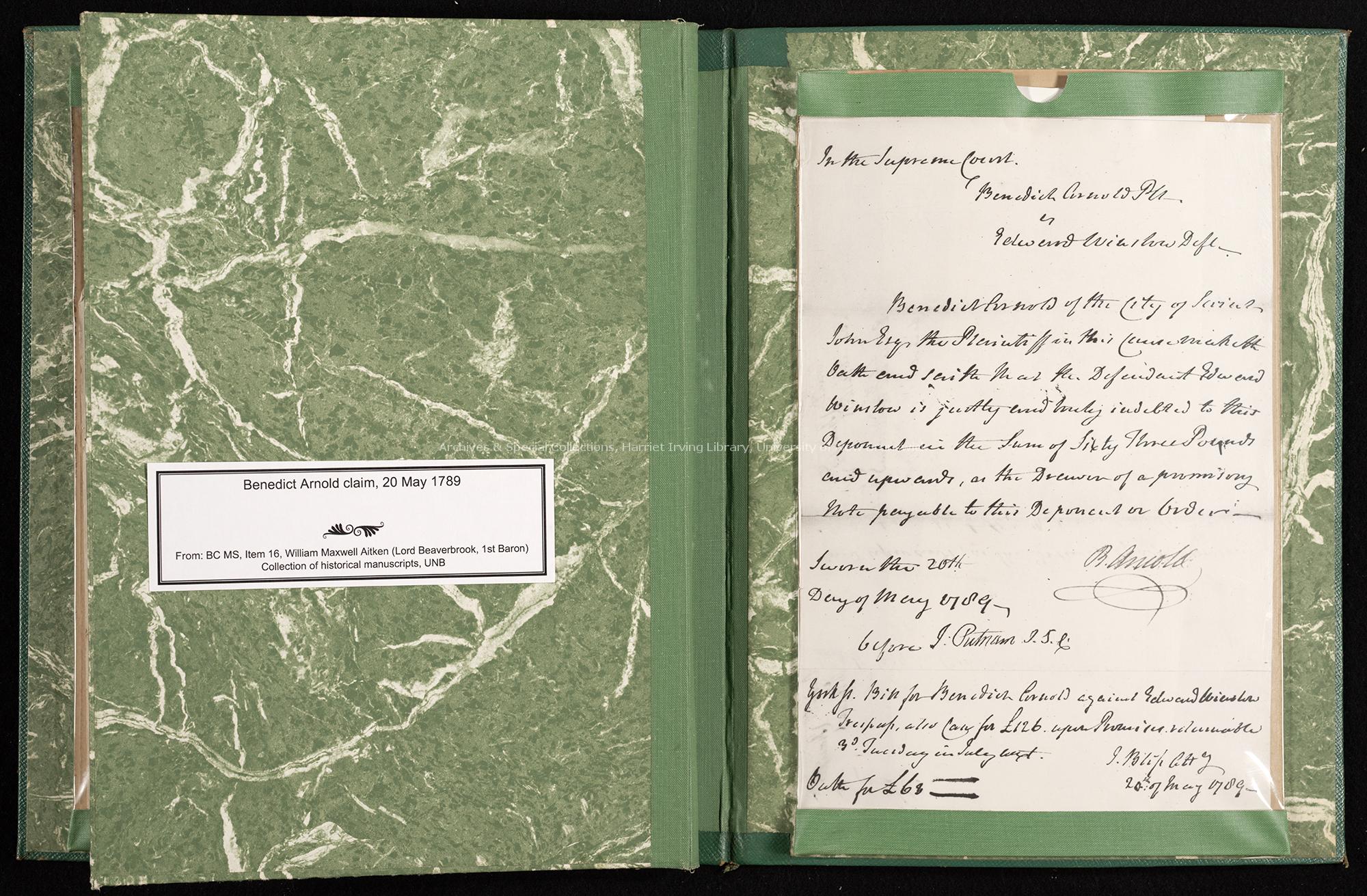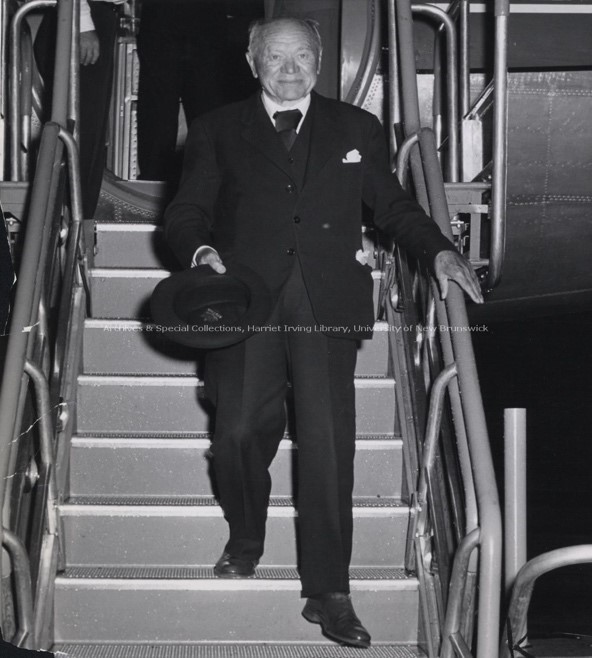- Submitted on
- 0 comments

The Loyalist Collection at the University of New Brunswick (UNB) is incredible. You can search on “Benedict Arnold” and get a detailed catalogue of what is available on microfilm in the collection, but also information as to where the originals reside.
You will see that documents mentioning Arnold or created by Arnold are to be found in archives around North America, including the Henry E. Huntington Library, San Marino, California, the Nova Scotia Legislative Library, the Carleton County Historical Society, the New Brunswick Museum and UNB’s Archives & Special Collections.
There are nine original documents in UNB’s Archives related to Benedict Arnold’s litigious doings.
In partnership with UNB’s Centre for Digital Scholarship, the Archives had these documents digitized and made available through The Gateway, UNB’s catalogue of archival holdings. These documents are now more accessible, with the added bonus of allowing researchers to sense the texture of the paper and see the small tears along the edges which bear witness to over 228 years of use.
Why, you may ask, does UNB have original documents related to Benedict Arnold?

Benedict Arnold and Monson Hayt fonds MG H 3, File 3, UNB Archives & Special Collections
UNB Archives & Special Collections has been a going concern since the early 1930s, but it was throughout the late 1940s and 1950s that Max Aitken, 1st Baron Beaverbrook began agitating for a place to house the historical records of New Brunswick. Beaverbrook started to collect manuscripts to deposit in the UNB Archives (as there was no provincial archives at the time, and none appeared to be forthcoming).
In 1950, J. J. Fraser Winslow, Lord Beaverbrook’s Fredericton lawyer, wrote to Beaverbrook and gave him an overview of the Benedict Arnold v Monson Hayt [also known as Munson Hoyt] slander case documents that had come into his possession.
Winslow added at end of the letter: “Also sad to relate, I found some records of an action brought by Benedict against my revered great-grandfather, Edward Winslow, on a promissory note for £63. I will seek the permission of the Attorney-General to place the original documents in the University Library.”

Beaverbrook’s replied on July 17, 1950: “…I do think it is a pity to bother the Attorney-General about it…Surely we can take the decision without appealing to him.”
Beaverbrook also muses that “the Arnold side of the suit must have been taken away to the library of Harvard University where many of the records of this Province are to be found.” (Sure enough, Harvard has digitized their Benedict Arnold papers, which includes an Indenture signed in New Brunswick by Arnold and Hayt).
Shortly after this exchange of letters (on October 17, 1950), the Arnold v Hayt papers were donated to the UNB Archives by Winslow, although there is no official documentation around the acquisition, or any information as to why Winslow had them. And so, through the actions of Winslow’s descendant and UNB’s benefactor, these items are preserved and are made widely accessible to all those interested in this interesting piece of Loyalist history.
Primary Sources Used:
Letter from J. J. Fraser Winslow to Max Aitken, Lord Beaverbrook dated 14 July 1950. William Maxwell Aitken (Lord Beaverbrook, 1st Baron) fonds, MG H 156, Social and general supplementary correspondence W: 1950, Case 52, File 40, item 32557.
Letter from Max Aitken, Lord Beaverbrook to J. J. Fraser Winslow dated 17 July 1950. William Maxwell Aitken (Lord Beaverbrook, 1st Baron) fonds, MG H 156, Social and general supplementary correspondence W: 1950, Case 52, File 40, item 32559.
Christine Lovelace has a MA in Records and Archives Management is Archivist with UNB Archives & Special Collections.
SUBJECT: archival research, digital humanities, Benedict Arnold, loyalist, slander, Monson Hayt/ Munson Hoyt, Max Aitken (1st Lord Beaverbrook), Edward Winslow, primary source

Add new comment